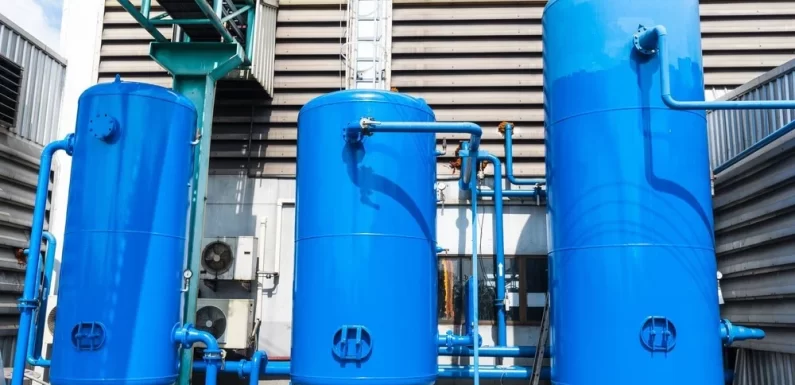
Renewable energy sources are inherently intermittent and dependent on environmental conditions, leading to fluctuations in energy production. To ensure a consistent and reliable energy supply, it is imperative to store surplus energy generated during peak production periods and release it during periods of low renewable energy generation. Process gas compressors play a critical role in facilitating the storage and utilization of renewable energy, particularly in the form of hydrogen.
Case Study Details
3.1 Hydrogen Production and Compression
Process gas compressors are instrumental in compressing the hydrogen gas generated through renewable methods such as electrolysis of water or steam methane reforming. The compression of hydrogen allows for efficient storage in tanks or pipelines, enabling the utilization of surplus renewable energy.
3.2 Hydrogen Refueling Stations
In the realm of hydrogen fuel cell vehicles, process gas compressors are deployed at refueling stations to compress hydrogen gas for vehicle fueling. This role is crucial in enabling the compact storage of hydrogen in the vehicle’s tanks, facilitating longer driving ranges and promoting the adoption of hydrogen fuel cell vehicles as a sustainable transportation solution.
3.3 Energy Storage and Grid Balancing
The compression of hydrogen using process gas compressors enables its utilization as a reliable energy storage medium. Surplus energy generated from renewable sources can be used to produce hydrogen, which is then compressed and stored. The stored hydrogen can subsequently be used to balance the grid and shave peak loads during periods of low renewable energy generation, contributing to grid stability and reliability.
3.4 Power-to-Gas (P2G) Applications
Process gas compressors are integral to power-to-gas applications, where surplus renewable energy is utilized to produce hydrogen through electrolysis. The compressed hydrogen can be injected into existing natural gas infrastructure or utilized for various industrial processes, effectively storing the renewable energy in the form of hydrogen and addressing energy demand fluctuations.
3.5 Integration with Renewable Power Plants
In certain scenarios, process gas compressors are integrated with renewable power plants to compress gases such as biogas or syngas for storage and later use in power generation. This integration augments the flexibility and dispatchability of renewable power systems, enhancing their reliability in providing a consistent energy supply.
Results and Impact
The integration of process gas compressors in renewable energy storage systems has yielded significant results and impact, including:
- Enhanced efficiency in hydrogen production and storage
- Facilitated the adoption of hydrogen fuel cell vehicles by enabling efficient refueling
- Contribution to grid stability through balancing and peak shaving
- Advancement of Power-to-Gas applications for energy storage and demand response
- Improved reliability and consistency of renewable power systems
Final Verdict
Process gas compressors play a pivotal role in the integration of renewable energy storage systems, particularly in the context of hydrogen energy storage. By facilitating the efficient compression and storage of hydrogen, process gas compressors contribute to the advancement of sustainable and reliable energy storage solutions, thereby addressing the intermittency associated with renewable energy sources.

